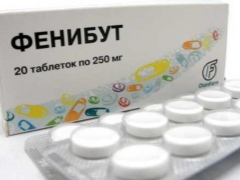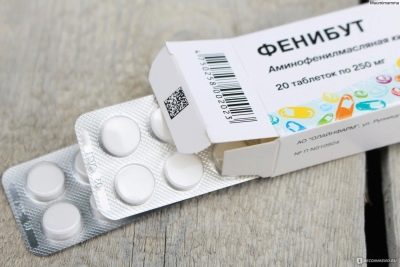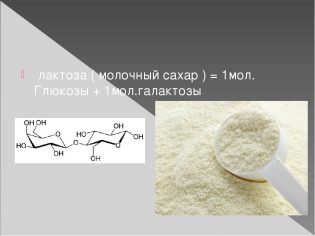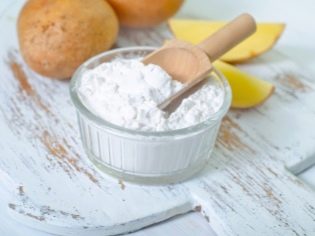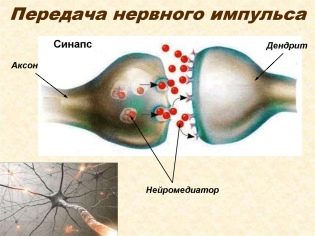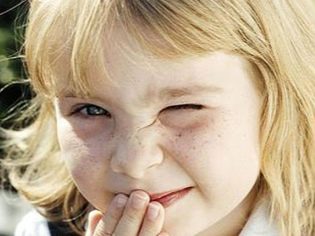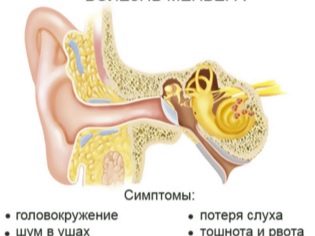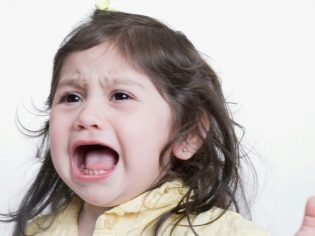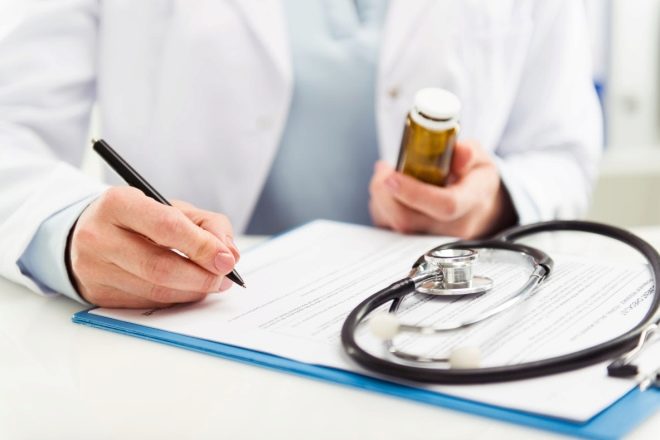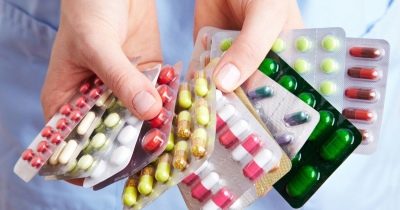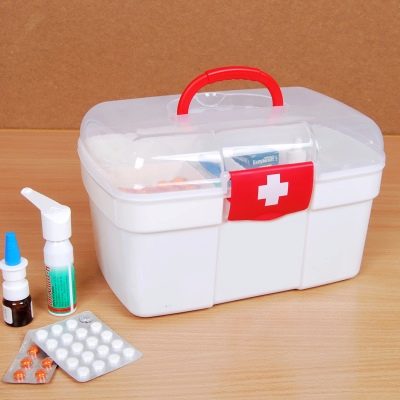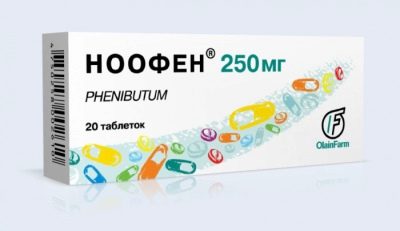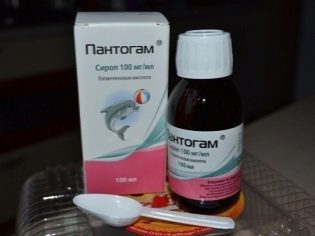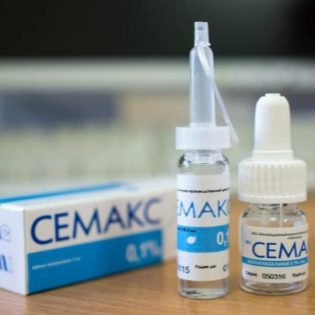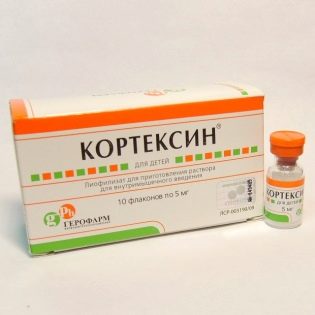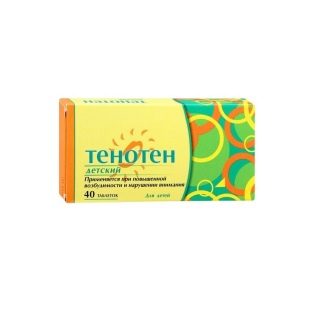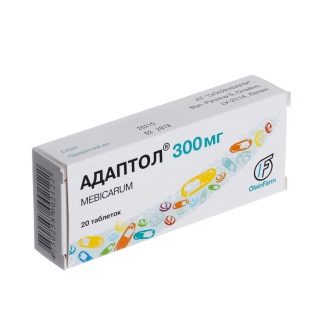Phenibut for children: instructions for use
In psychostimulant and nootropic drug called "Phenibut" they note the ability to influence the state of the nerve cells of the brain, so that this drug is in demand in the treatment of asthenia, neurosis and other problems in the work of the central nervous system. It is often prescribed for elderly patients with insomnia, anxiety, or anxiety. But is it possible to give "Phenibut" to children? In which diseases is this remedy used in childhood, in what doses can it be prescribed and which analogs can it be replaced if the drug did not have the desired effect or did the patient develop an allergy?
Release form
The drug is available in several pharmaceutical companies in Russia, Belarus and Latvia only in solid form. It is a small round pill with a white or yellowish color. On one side of the drug there is a risk according to which it can be divided in half. This medication is placed in blisters of 10 pieces and sold in boxes of 10, 20, 30 or more tablets.
Composition
The main component of "Phenibut", which provides the healing properties of tablets, is called aminophenylbutyric acid. It is contained in the product in the form of hydrochloride, and the dosage of such acid in one tablet is 250 mg (half contains 125 mg).
Auxiliary compounds from different manufacturers are different and are represented by calcium stearate, milk sugar, microcrystalline cellulose, potato starch and other substances.
If a child has intolerance to such components, the composition of the purchased "Phenibut" must be specified on its packaging or in the paper instruction attached to the tablets.
Operating principle
"Phenibut" is referred to as nootropic drugs, because such a drug can affect the state of the central nervous system, normalizing metabolic processes and blood flow in brain tissues. This is due to the ability of aminophenylbutyric acid to affect the transmission of impulses in nerve cells.
The drug has antioxidant properties, and also helps get rid of anxiety and fears. Such an action is called anxiolytic, and its presence makes it possible to attribute “Phenibut” to tranquilizers, albeit weak ones. The use of tablets reduces the severity of vasovegetative symptoms, which include irritability, frequent mood swings, headaches, sleep problems, a feeling of heaviness in the head, and other ailments.
After the course of treatment with Phenibut, the working capacity (both physical and mental) increases. The drug has a positive effect on the attention, accuracy and speed of reactions, memory. Under his influence, asthenic manifestations are eliminated, well-being improves, initiative and interest in new knowledge increase. The drug reduces anxiety and tension, and also normalizes sleep.
Indications
"Phenibut" is prescribed for:
- nervous ticke;
- insomnia and nightmares;
- dizziness caused by vestibular disorders;
- asthenic condition (complaints of apathy, feeling of exhaustion, constant lethargy, and so on);
- enuresis;
- stuttering;
- maze;
- Meniere's disease;
- motion sickness syndrome (kinetosis);
- anxiety-neurotic states.
At what age is it allowed to take?
In the annotation to "Phenibut" most manufacturers indicated that this tool does not apply to the treatment of patients younger than 3 years. Some companies note in contraindications the age of 8 years, since it is from that age that the dosage of 250 mg is indicated.
In practice, neurologists can prescribe such pills and younger children, but up to 2 years of age, they are prescribed extremely rarely, trying to avoid the harmful effects of the drug on the immature nervous system of babies.
The use of the drug in schoolchildren and adolescents without the advice of a specialist is not recommended.
Contraindications
"Phenibut" is not prescribed to children who have hypersensitivity to aminobutyric acid or any other ingredient of tablets. In the presence of lactose in the medication (this should be clarified in the annotation to the selected drug), the medicine is prohibited for patients with its shortage. Precautions in the treatment of "Phenibut" require children with ulcerative lesions of the gastrointestinal tract, as well as with liver disease, because the drug can irritate the gastric mucosa, and high doses of drugs are hepatotoxic.
Side effects
During the reception of "Phenibut", various negative reactions of the body may appear, for example: dizziness, nausea, skin rash or drowsiness. Very long-term use of the drug can adversely affect the state of the liver and hematopoiesis, therefore, with a long course of therapy, weekly monitoring of blood tests (the number of cells and the level of liver enzymes) is recommended.
If the children's body responded to the medication with any negative symptoms, you should stop giving the pills and consult a doctor.
Dosage
To eliminate the harmful effect on the stomach, the medicine is taken after eating, swallowing the pill and washing it down with water. Patients of 3-8 years are recommended doses from 50 to 150 mg. In many cases, a child under eight years old "Phenibut" is prescribed 125 mg, that is, half a tablet at a time. A child of 8-14 years old is given a single dose of 250 mg (whole tablet). For adolescents older than 14 years, use adult doses of 250-500 mg per dose.
In such dosages, the medication should be taken three times a day, and the course of treatment often lasts 2-3 weeks. At children's age longer than 4 weeks, this medicine is not prescribed to eliminate addiction. Repeated reception of "Phenibut" is possible only after a break of 2-4 weeks. For the prevention of motion sickness, the drug is given in a dose of 250-500 mg one hour before the trip or when an indisposition occurs during the journey (but only at the first signs of motion sickness, since with the expressed symptoms "Phenibut" is ineffective).
When treating various neurological disorders, the medicine is given immediately in the dose prescribed by a neurologist, pediatrician or other specialist. There is no need to gradually increase the dosage at the beginning of treatment, but it is not advised to abolish the drug abruptly - the famous pediatrician Komarovsky also speaks about this. If you refuse to take immediately, you may experience negative symptoms, to eliminate which the child and began to give pills.
This is due to the mechanism of action of "Phenibut", because such a tool is a source of metabolites that during the period of therapy are not produced by brain cells. In the case of abrupt cessation of treatment, the nerve cells do not have time to undertake the task of synthesizing these metabolites immediately, which is manifested by the return of negative symptoms. With the gradual abolition of this does not happen, because brain cells adapt to change. That is why the doctor must prescribe a regimen of tablets with a decrease in dosage in the last week.
Overdose
"Phenibut" refers to low-toxic drugs, cases of overdose of this drug have not been diagnosed until this time.In theory, a very high dose medication can cause nausea, dizziness, drowsiness, or vomiting. In such situations, it is recommended to wash the stomach and prescribe symptomatic remedies for the child.
Interaction with other drugs
In "Phenibut" note the properties to enhance the effect of hypnotic drugs and drugs for epilepsy, as well as narcotic analgesics and neuroleptics. If the medication is prescribed together with the specified means, the dosage should be below the standard. It is also important to monitor the patient’s condition if, in addition to Phenibut, he accepts drugs that may have a negative effect on the blood system or the condition of the liver.
Terms of sale
To buy "Phenibut" for a child in a pharmacy, you must first show a small patient to the doctor, because such a tool is sold by prescription. The cost of the drug affects the number of tablets in the package and the manufacturer. On average, the price of 20 Russian-made Fenibut tablets is 100-120 rubles, and the Latvian drug is about 400 rubles.
Storage conditions
Keep tablets at home should be in a dry place, where the drug will not act high temperature (above +30 degrees). Such a place should also be hidden from small children. The shelf life of tablets is usually 3 years and is indicated on the box or on the blister.
If the date marked on the drug has passed - giving such medicine to children is prohibited.
Reviews
Most of the feedback from doctors and parents about Phenibut is positive and confirms the good effect of tablets in nervous ticking, stuttering and other problems with the nervous system. According to moms, the remedy begins to act fairly quickly, and after the course of such a medicine, the child's memory improved, the irritability disappeared, the sleep became calmer and more qualitative.
Negative reviews of "Fenibut" about 1/3. In some of them, parents complain about the lack of a therapeutic effect, in others, on the contrary, they report adverse reactions in the form of increased anxiety, dizziness, irritability, pain in the head, and other symptoms from the central nervous system. In some patients, the medication causes irritation of the digestive tract.
In addition, many mothers consider the drug to be very strong and they are afraid to give it to children, especially at an early age, since psychological addiction often develops to tablets. In addition, the cost of a course of drug treatment from some manufacturers (for example, from the Latvian company Olainfarm) is called too high, and the quality of less expensive counterparts remains dissatisfied.
Analogs
If you need to replace "Phenibut" with a similar medicine, it is often prescribed "Anvifen", Because its action provides the same active substance. This medication is available in capsules containing from 25 to 250 mg of aminophenyl butyric acid. Children, he is discharged from the age of three with the same indications as "Phenibut", as well as in the same dosages.
Another Phenibut analogue containing aminophenyl butyric acid is "Noofen". Such medicine is also represented by capsules, but only in one dosage (250 mg of the active ingredient in each), therefore it is prescribed to children over 8 years old.
Instead of “Phenibut”, a doctor may also write another remedy from the group of nootropics or anxiolytics.
- «Pantogam». Such medication containing hopantenic acid is prescribed for children with stuttering, ADHD, mental retardation, epilepsy, and other diseases. In the form of syrup, it can be given even to babies, and in tablets prescribed from 3 years. Its counterpart are Pantokalcin tablets, which are also used from the age of three.
- «Glycine». This tablet preparation contains an amino acid that has a positive effect on the state of the brain and sleep. Such medicine may be prescribed from birth.
- «Afobazole». The action of such tablets provides fabomotizol, effective for anxiety, severe stress and problems with sleep.Although they are contraindicated in childhood, neuropathologists may prescribe this medication from 10–12 years of age if indicated.
- «Semax». This nootropic agent is released in the form of drops in the nose and in a concentration of 0.1%, used from 7 years. It is prescribed for FFR, increased excitability, sleep disorders and other neurological problems.
- «Cortexin». This medicine is prescribed to patients of any age, but it is available only in injectable form. The drug is in demand for delayed development, encephalopathy and other diseases of the central nervous system.
- «Children's tenoten». Such a drug with a sedative effect is homeopathic and is used for hyperactivity, neurosis, stress, and other problems. It is produced in the form of sweet lozenges and prescribed to children over the age of three.
- «Adaptol». According to the instructions, these mebicar-based tablets should not be used in children, but many neuropathologists prescribe them to patients older than 9-10 years old if the child has indications for such treatment.
On the "Phenibute" for children, see the following video.
